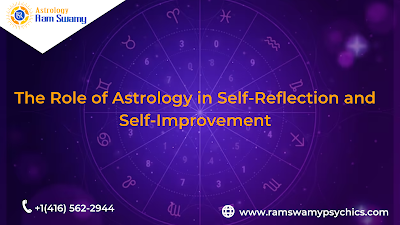Understanding Astrology:
Astrology is grounded in the belief that celestial bodies, such as planets and stars, possess an influence on human affairs, offering valuable insights into an individual's personality, behavior, and destiny. Astrologers create birth charts, commonly referred to as horoscopes, by plotting the positions of celestial bodies at the time of a person's birth. These birth charts are believed to reveal information about a person's strengths, weaknesses, and inclinations.
The Case for Astrology in Career Guidance:
Supporters of astrology argue that the positions of celestial bodies at birth can unveil certain personality traits and inclinations that may align with specific career paths. For instance, someone born under the sign of Aries, renowned for their leadership qualities, might thrive in managerial or entrepreneurial roles. Similarly, an individual strongly influenced by the sign of Virgo, known for attention to detail, may excel in analytical or administrative fields.
Astrology can also shed light on an individual's strengths and weaknesses, aiding in the identification of areas of interest and potential challenges within different career paths. Through analysis of the birth chart, astrologers claim to provide guidance on suitable professions, emphasizing areas where individuals are likely to find fulfillment and success.
The Skeptic's Perspective:
Critics of astrology assert that its claims lack scientific evidence and rely on subjective interpretations. They contend that astrology hinges on general statements that can be applied to almost anyone, and its predictions are often vague and open to interpretation. Skeptics argue that factors such as education, personal development, and individual choices exert a far greater impact on career success than astrological signs.
Making Informed Career Decisions:
While astrology may be intriguing and offer a fresh perspective, it should not serve as the sole basis for making career decisions. Instead, it is advisable to regard astrology as one of many tools available for self-reflection and exploration.
Outlined below are practical steps for making informed career decisions:
Self-Reflection: Dedicate time to understand your interests, skills, and values. Identify your passions and strengths to discern what genuinely motivates you.
Research and Exploration: Explore various career options that align with your interests. Conduct thorough research to grasp the required skills, job prospects, and potential growth opportunities.
Seek Guidance: Consult career counselors, mentors, or professionals in your fields of interest. Their expertise and experience can offer valuable insights and help you gain a realistic understanding of different career paths.
Gain Experience: Engage in internships, part-time jobs, or volunteer work to acquire practical experience in your areas of interest. This hands-on experience can assist in evaluating your compatibility with a specific career path.
Networking: Networking provides access to valuable advice, job opportunities, and a better understanding of the industry.
Conclusion:
Astrology can serve as an intriguing tool for self-reflection and self-discovery. However, when it comes to selecting the right career path, it is crucial to consider multiple factors, including personal interests, skills, values, and practical considerations. While astrology may provide some insights, relying solely on it for career decisions is not recommended. Ultimately, making informed choices based on thorough research, self-reflection, and professional guidance will pave the way for a more fulfilling and successful career journey.







